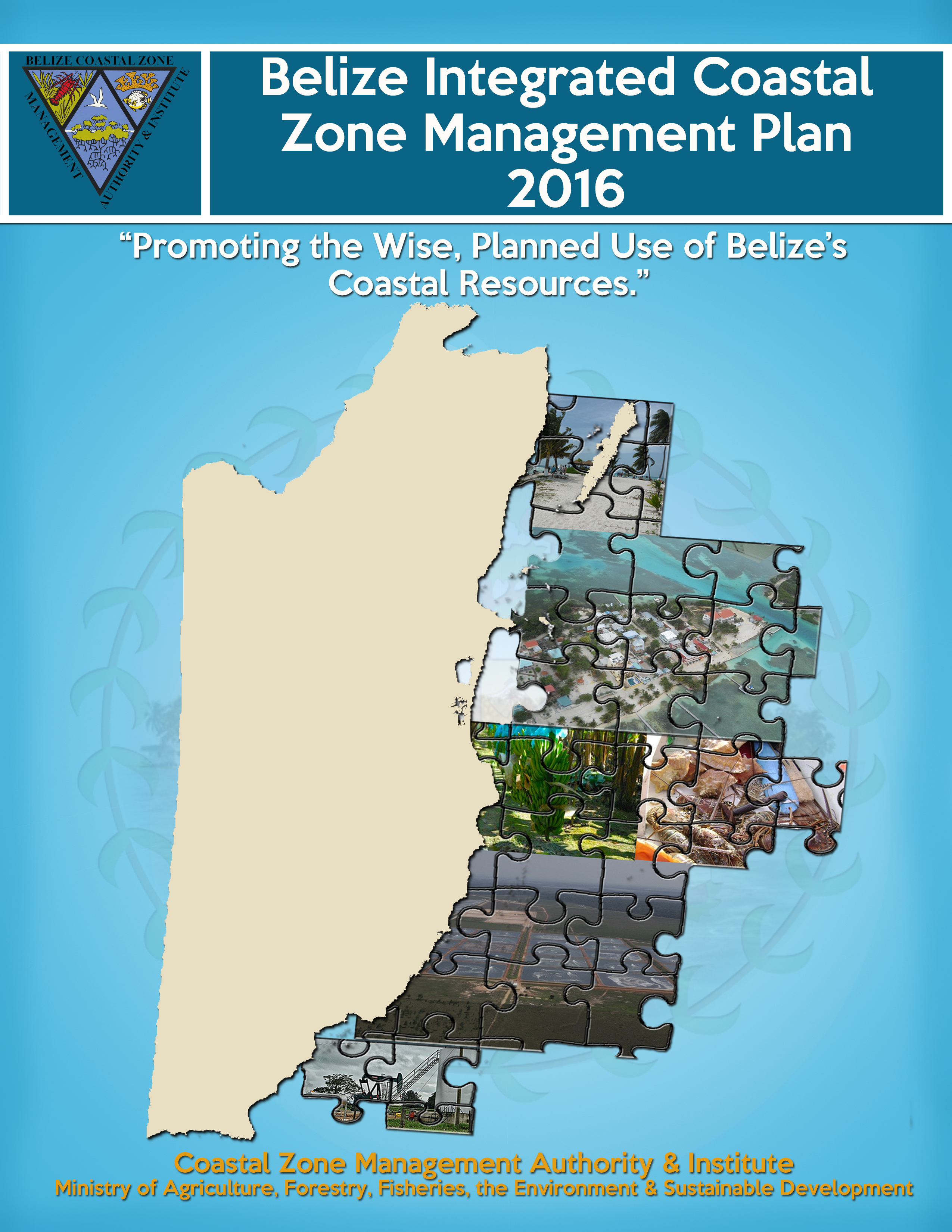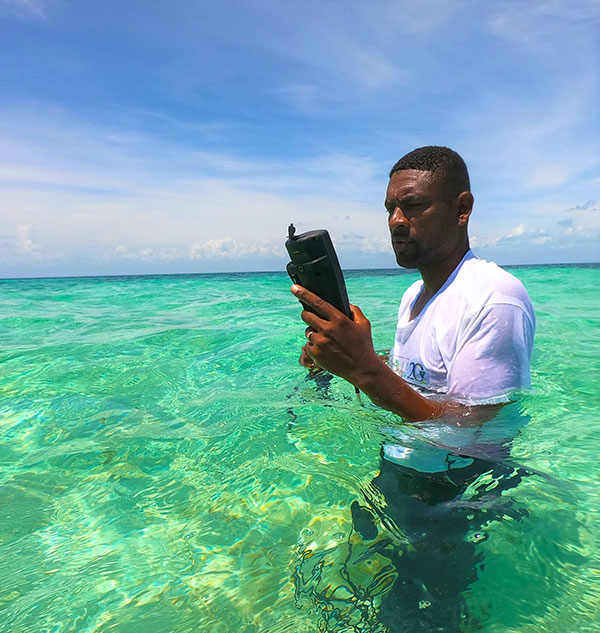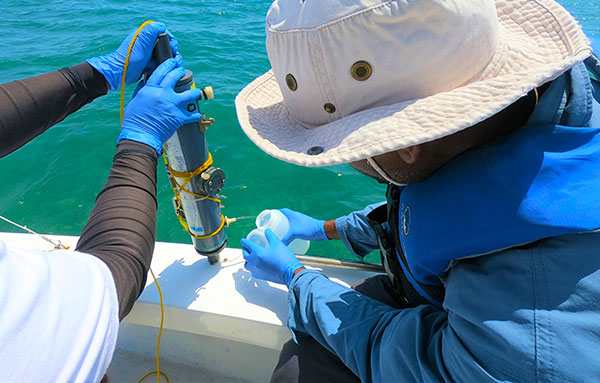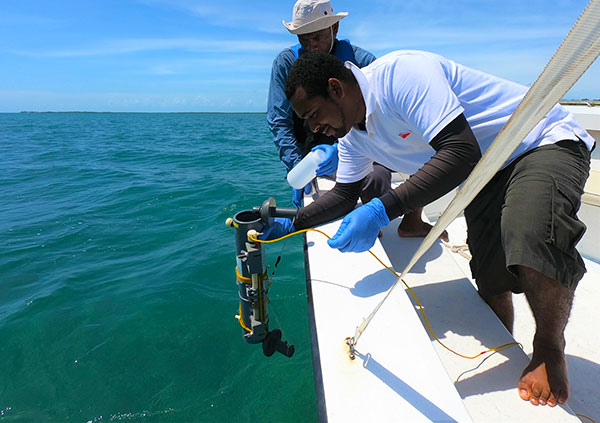Our nation’s coastline is a vital source of national wealth and pride and many Belizeans depend on it for its numerous resources. Evidently, there may be conflicting interests for the different sectors that use the coastal zone which is why Integrated Coastal Zone Management is necessary for Belize. Coastal planning is the process used to make better decisions about the use of the coastal zone. It allows for consideration of many different uses of the coastal zone at once which allows for better decisions about uses and reduces potential conflicts that may arise from overlapping sectors.

Coastal Planning
Background
The Coastal Planning Program’s focus is to ensure that management activities are integrated and to highlight additional activities and actions that could be undertaken to help meet the challenge of ensuring a sustainable future for the coastal zone where healthy ecosystems support and are supported by thriving local communities and a vibrant economy. The strategic objectives for achieving this vision of a sustainable coast are:
- Encouraging Sustainable Coastal Resource Use
- Supporting Integrated Development Planning
- Building Alliances to benefit Belizeans
- Adapting to Climate Change
In order to achieve these objectives, an Integrated Coastal Zone Management Plan was developed. As part of the Coastal Zone Management Act, CZMAI was mandated to develop this plan which has been completed and now adopted by the government, therefore, the Plan is a part of the Laws of Belize and should be used as a guide for coastal zone management in Belize for all sectors.
ICZM Plan
The Coastal Zone Management Act came into full force in April 1998, which directed the preparation and implementation of a Plan as the vehicle to effectively operationalize the concept of Integrated Coastal Zone Management (ICZM) in Belize. As of September 2016, the Government of Belize officially authorized the use of the ICZM Plan to be used by government and non-government agencies as the overall guiding strategy to make defensible decisions to better manage Belize’s coastal and marine resources.
In order to develop the ICZM Plan, the coastal zone was divided into nine (9) planning regions (MAP) which were done based on biological, geographical, economic and administrative similarities. The ICZM Plan is divided into two volumes. The first being the national document with recommendations for the different departments of Ministries in Belize. The second is volume two which are specific guidelines for each of the planning regions.
A strategic partnership was established between CZMAI and the Natural Capital Project (Nat Cap) to use an ecosystem services approach to better understand human impacts on the benefits of our coastal and marine ecosystems and to use the information to resolve conflict. NatCap’s InVEST tool was used to create models and zoning schemes for the development of the ICZM Plan. The zoning schemes spatially locates permissible activites and uses in the coastal zone. Zones include locations set aside for marine protected areas, as well as areas prioritized for fishing, coastal development, marine tourism, transportation and other human uses. The zoning scheme is intended to resolve conflicts in resource use and negotiate competing interests for management of the coastal zone.
The Coastal Planning Unit is responsible for the implementation of the ICZM Plan which involves meeting with stakeholders from all sectors to socialize the recommendations in the plan. The goal of the ICZM plan is to recommend actions that ensure sustainable coastal development through a balanced mix of conservation and utilization, which can support economic growth while promoting the long-term viability of the country’s treasured barrier reef and coastline.
ICZM Plan:
BELIZE-Integrated-Coastal-Zone-Management-Plan
ICZM Plan Guidelines:
Ambergris-Caye-Coastal-Zone-Management-Guidelines
South-Central-Region-Coastal-Zone-Management-Guidelines
Turneffe-Atoll-Coastal-Zone-Management-Guidelines
Caye-Caulker-Coastal-Zone-Management-Guidelines
Central-Region-Coastal-Zone-Management-Guidelines
Lighthouse-Reef-Atoll-Coastal-Zone-Management-Guidelines-1
Northern-Region-Coastal-Zone-Management-Guidelines
Community Wardens Programme
Introduction
The Coastal Zone Management Authority and Institute (CZMAI) is the focal agency responsible for implementing the plan. CZMAI is now moving into the implementation and monitoring phase of the plan. CZMAI recognizes that local communities often have greater insight of local conditions and activities but limited statutory powers. For this reason, CZMAI seeks to implement the Community Wardens Program which would involve participation of the communities in the various planning regions. These volunteers will help with monitoring activities happening along the coast to ensure that the relevant polices and recommendations from the plan are being followed.
Community Wardens Program
The Community Warden Program will be made up of volunteer members with a passion for protecting coastal resources and who have connections with individuals in their communities. Community Wardens will be the eyes and ears of CZMAI and provide information on coastal issues that CZMAI would not otherwise be able to collect. They will assist in the recording of unlawful activities in their region to help strengthen the sustainable use of coastal resources.
Community Wardens will notify CZMAI directly of any of these activities. The information will then be passed on to the relevant enforcing agencies to then allow them to address the problem. CZMAI will also provide feedback to Community Wardens on reports they make based on the enforcement agencies decisions.
Reports from the Community Wardens will also be documented over time and placed into a report. This report will be used to determine region specific risks and threats that are reoccurring. The report will be presented to relevant agencies to serve as encouragement for them to take action to remedy these issues on a larger scope. It will also identify where improvements in management can be made which will lead to the overall improvement of coastal zone management for Belize.
The initiation of the programme began in late 2018 – early 2019. The coastal planning unit met with the village/ town and city council chairs from each coastal community and have requested names of recommended persons. CZMAI will then have a training session at each community to train wardens on what information is relevant to CZMAI.
Definition of a Community Warden
A Community Warden is an individual under the direction of CZMAI personnel who, of his or her free will and without compensation or financial gain, contributes service to assist CZMAI in the monitoring and reporting of regulated coastal management activities. Community Wardens are not considered employees and do not have the same rights as employees.
Roles and Duties
- Report coastal management issues.
- Identify and report resource damage and hazards.
- Abide by “Observe, Record, Report”.
- Conduct only reporting activities.
- Information dissemination.
- Distribution of guidelines.
- Guideline and CZMAI updates.
Responsibilities
- Follow reporting procedures
- Familiarize themselves with relevant legislation
- Do best to personally abide by the guidelines
- Identify self as someone who others can report violations to
- Be reliable in fulfilling assignments
- Seek and accept guidance and support needed to complete duties
- Provide only authorized information from CZMAI documents when educating community members about guidelines. As a representative of CZMAI, personal opinions and rumors are not to be distributed as fact
- Represent CZMAI in a professional manner
- Understand roles and responsibilities of CZMAI and understand the general organizational structure
- Report any phone/email change to the Community Warden Liaison
- Communicate promptly with a supervisor or coordinator any time they cannot comply with their time commitment
- Give reasonable advance notice should they desire to terminate their Community Warden position
Volunteers
Community Warden should fulfill the following requirements:
- Be of legal age (18 years or older)
- Read the full version of their respective regional “Coastal Zone Management Guidelines”
- Participate in training sessions and meetings
Coastal Advisory Committees Coastal Advisory Committees (CAC) are groups established throughout the coastal area of Belize that represents the partnership between stakeholders and the CZMAI in the coastal management process. CACs were formed in each of the nine coastal planning regions and act both as a channel and a catalyst for the expression of comments and observations on coastal issues. To this end, membership includes a comprehensive range of interests: local municipalities (village, town and city), local and national NGOs, local and national producer’s and user’s associations, interested key individuals, and government officers. Finally, to fulfill their role in coastal zone management process, each CAC was responsible for the drafting and implementation of Coastal Zone Management Guidelines for their particular region.
Function of the Committees
- Represent the communities and stakeholder that have a direct interest in the utilization and/or enjoyment of the terrestrial and marine environments of the coastal regions
- Inform and advise the CZMAI on the marine and terrestrial issues that the committee identify as impacting on the biological, physical, social and economic state of their region
- To make recommendations to the CZMAI on means of improving the biological, physical, social and economic situation of their region
- To contribute to the approval of Development Guidelines for their respective coastal region
- Educate and advocate for the suitable management of the coastal zone
- Monitor and report to the CZMAI on the implementation and effectiveness of the Development Guidelines, and other policies and guidelines for coastal resource management for each coastal region
- Act as a forum for the discussion of coastal issues on a national scale
- Explore the possibilities of grant funding and association with educational institutions, in liaison with the CZMAI, to assist in the carrying out of the roles described above.
Water Quality Monitoring
In Belize, one of the first National Water Quality Program was established in September 1992 under the Coastal Zone Management Project. The program aimed at collecting baseline water quality data for critical areas of the coastal zone. Considering that the value of the coastal zone was threatened by land-based sources of pollution, the water quality monitoring program became necessary to detect pollutants and departures from acceptable water quality norms.
The objectives of the Water Quality Program were:
- To establish the natural chemical, biological and physical characteristics of the water bodies in the coastal zone of Belize,
- To inform decision-making and national policies that promotes sustainable development and viable coastal activities in these bodies while protecting their natural integrity.
In 2015, Belize under the leadership of the Ministry of Forestry, Fisheries and Sustainable Development (MFFSD) with fiduciary management assistance from the Protected Areas Conservation Trust (PACT) as the National Implementing Entity (NIE) and the World Bank as Multilateral Implementing Entity (MIE), signed on to implement the Marine Conservation and Climate Adaptation Project (MCCAP) in the coastal areas of Belize. MCCAP is a five-year project designed to implement priority ecosystem-based marine conservation and climate adaptation measures to strengthen the climate resilience of the Belize Barrier Reef System and its productive marine resources.
The MCCAP project have 4 components:
- Improving the protection regime of marine and coastal ecosystems;
- Promotion of viable alternative livelihoods for affected users of the reef in the areas impacted by project activities;
- Raising awareness and building capacity; and
- Project Management, Monitoring and Assessment.
Under this project the CZMAI has received funding to undertake water quality monitoring activities to monitor the successful implementation of the National Integrated Coastal Zone Management (ICZM) which is included as an activity under Component 1 of the MCCAP Project; improving the protection regime of marine and coastal ecosystems. Under component 1, CZMAI will conduct a study of the Belize River Watershed (BRW). The main purpose of the information will be used to study seasonal changes as well as changes that occur as a result of extreme weather events such as: tropical cyclones, flooding, drought etc.








